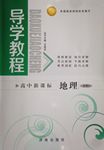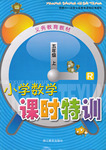题目内容
The poet compares the woman he loves __________ a rose.
- A.for
- B.with
- C.to
- D.at
C
试题分析:考查compare固定词组。Compare的词组有:compare A with B把A与B进行比较(AB是同类的事物);compare A to B 把A比作为B(AB是不同类事物);另外还有一个固定用法:compared with/to…与…相比;在句中做状语,单独使用。句意:诗人把他所爱的这个女的笔作为玫瑰。故C正确。
考点:考查固定词组
点评:动词Compare的词组有:compare A with B把A与B进行比较(AB是同类的事物);compare A to B 把A比作为B(AB是不同类事物);另外还有一个固定用法:compared with/to…与…相比;在句中做状语,单独使用。
试题分析:考查compare固定词组。Compare的词组有:compare A with B把A与B进行比较(AB是同类的事物);compare A to B 把A比作为B(AB是不同类事物);另外还有一个固定用法:compared with/to…与…相比;在句中做状语,单独使用。句意:诗人把他所爱的这个女的笔作为玫瑰。故C正确。
考点:考查固定词组
点评:动词Compare的词组有:compare A with B把A与B进行比较(AB是同类的事物);compare A to B 把A比作为B(AB是不同类事物);另外还有一个固定用法:compared with/to…与…相比;在句中做状语,单独使用。

练习册系列答案
 导学教程高中新课标系列答案
导学教程高中新课标系列答案 小学课时特训系列答案
小学课时特训系列答案
相关题目